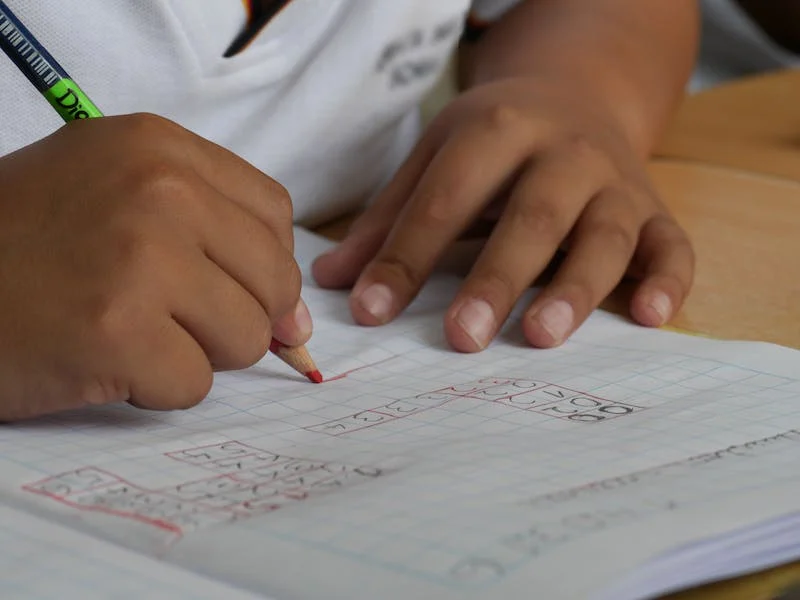Key Takeaways
 Time Management
One of the most critical components of a successful undergraduate education is time management. Learning to prioritize tasks, set realistic goals, and adhere to a structured schedule can help students handle their academic workload efficiently. Investing in online undergraduate degree programs offers flexibility, enabling students to handle their academic tasks and other responsibilities efficiently. By integrating time management practices, students can avoid the stress of last-minute cramming and enhance the quality of their work.
A Forbes article discusses practical time management strategies that are beneficial for students. Strategies such as the Pomodoro Technique, where you work in short, focused intervals with breaks in between, can assist in maintaining productivity and preventing exhaustion. The Eisenhower Matrix, which categorizes tasks into urgent, non-urgent, necessary, and non-important, can aid in determining priorities. Time-blocking, or allocating specific time slots for different tasks, ensures that students dedicate adequate time to each subject and activity.
(more…)
Time Management
One of the most critical components of a successful undergraduate education is time management. Learning to prioritize tasks, set realistic goals, and adhere to a structured schedule can help students handle their academic workload efficiently. Investing in online undergraduate degree programs offers flexibility, enabling students to handle their academic tasks and other responsibilities efficiently. By integrating time management practices, students can avoid the stress of last-minute cramming and enhance the quality of their work.
A Forbes article discusses practical time management strategies that are beneficial for students. Strategies such as the Pomodoro Technique, where you work in short, focused intervals with breaks in between, can assist in maintaining productivity and preventing exhaustion. The Eisenhower Matrix, which categorizes tasks into urgent, non-urgent, necessary, and non-important, can aid in determining priorities. Time-blocking, or allocating specific time slots for different tasks, ensures that students dedicate adequate time to each subject and activity.
(more…)
- Understanding the fundamental skills needed to excel in undergraduate studies.
- Ways to develop and enhance these skills for academic success.
- Practical tips students can apply immediately to improve their learning experience.
 Time Management
One of the most critical components of a successful undergraduate education is time management. Learning to prioritize tasks, set realistic goals, and adhere to a structured schedule can help students handle their academic workload efficiently. Investing in online undergraduate degree programs offers flexibility, enabling students to handle their academic tasks and other responsibilities efficiently. By integrating time management practices, students can avoid the stress of last-minute cramming and enhance the quality of their work.
A Forbes article discusses practical time management strategies that are beneficial for students. Strategies such as the Pomodoro Technique, where you work in short, focused intervals with breaks in between, can assist in maintaining productivity and preventing exhaustion. The Eisenhower Matrix, which categorizes tasks into urgent, non-urgent, necessary, and non-important, can aid in determining priorities. Time-blocking, or allocating specific time slots for different tasks, ensures that students dedicate adequate time to each subject and activity.
(more…)
Time Management
One of the most critical components of a successful undergraduate education is time management. Learning to prioritize tasks, set realistic goals, and adhere to a structured schedule can help students handle their academic workload efficiently. Investing in online undergraduate degree programs offers flexibility, enabling students to handle their academic tasks and other responsibilities efficiently. By integrating time management practices, students can avoid the stress of last-minute cramming and enhance the quality of their work.
A Forbes article discusses practical time management strategies that are beneficial for students. Strategies such as the Pomodoro Technique, where you work in short, focused intervals with breaks in between, can assist in maintaining productivity and preventing exhaustion. The Eisenhower Matrix, which categorizes tasks into urgent, non-urgent, necessary, and non-important, can aid in determining priorities. Time-blocking, or allocating specific time slots for different tasks, ensures that students dedicate adequate time to each subject and activity.
(more…)


 The landscape of public health is evolving rapidly, and with it, the demand for skilled professionals is surging. A graduate certificate in public health is increasingly recognized as an essential step for individuals seeking to bolster their qualifications. Here's how a specialized certificate can open new doors, enhance your expertise, and position you as a leader in the field. Keep reading to uncover the benefits that await.
The landscape of public health is evolving rapidly, and with it, the demand for skilled professionals is surging. A graduate certificate in public health is increasingly recognized as an essential step for individuals seeking to bolster their qualifications. Here's how a specialized certificate can open new doors, enhance your expertise, and position you as a leader in the field. Keep reading to uncover the benefits that await.

 Larissa K. Samuelson, PhD
Professor
Developmental Dynamics Lab
School of Psychology; UK 14th for Research Quality
Psychology, Psychiatry, and Neuroscience
University of East Anglia, United Kingdom
MedicalResearch.com: What is the background for this study?
Response: Words direct the attention of infants, children and adults to mentioned objects in the environment. When someone says “Can you find the candy,” you look to the candy sitting on the counter. This fact is the basis of many tests of infant cognition in laboratories. To find out if a child knows the word “bike” we put a picture of a bike and a truck on a TV screen, say the word “bike” and see if they look at the correct object.
There is also evidence that words can direct attention even if you don’t know what they mean yet. For example, in studies of learning in the lab novel made up words like “modi” can direct children’s attention to specific features of objects. One particular example of this is the “shape bias”. If a two-year-old is shown a novel object and told a novel name, for example “This is my blicket,” and then asked, “Can you get your blicket” and shown one object that matches the named one in shape and another that is made from the same material, they will attend to the one that matches in shape. Researchers think the naming event “This is my…” cues children to look at things that are the same shape because they already know many names for things in sets that are similar in shape; cups are all cup-shaped, keys are all key-shaped, spoons are all spoon-shaped, etc.
Prior research suggests there may be differences in the way children who struggle with language decide what a new word means. For example, children with Developmental Language Disorder do not pay attention to the same things when learning new words as children with typical language development. These children do not look to an object that matches a named exemplar in shape when asked to “get your blicket”. But you can’t diagnose children with DLD until they are 3 or 4. We want to see if we can identify these children earlier, so they can get early support.
Larissa K. Samuelson, PhD
Professor
Developmental Dynamics Lab
School of Psychology; UK 14th for Research Quality
Psychology, Psychiatry, and Neuroscience
University of East Anglia, United Kingdom
MedicalResearch.com: What is the background for this study?
Response: Words direct the attention of infants, children and adults to mentioned objects in the environment. When someone says “Can you find the candy,” you look to the candy sitting on the counter. This fact is the basis of many tests of infant cognition in laboratories. To find out if a child knows the word “bike” we put a picture of a bike and a truck on a TV screen, say the word “bike” and see if they look at the correct object.
There is also evidence that words can direct attention even if you don’t know what they mean yet. For example, in studies of learning in the lab novel made up words like “modi” can direct children’s attention to specific features of objects. One particular example of this is the “shape bias”. If a two-year-old is shown a novel object and told a novel name, for example “This is my blicket,” and then asked, “Can you get your blicket” and shown one object that matches the named one in shape and another that is made from the same material, they will attend to the one that matches in shape. Researchers think the naming event “This is my…” cues children to look at things that are the same shape because they already know many names for things in sets that are similar in shape; cups are all cup-shaped, keys are all key-shaped, spoons are all spoon-shaped, etc.
Prior research suggests there may be differences in the way children who struggle with language decide what a new word means. For example, children with Developmental Language Disorder do not pay attention to the same things when learning new words as children with typical language development. These children do not look to an object that matches a named exemplar in shape when asked to “get your blicket”. But you can’t diagnose children with DLD until they are 3 or 4. We want to see if we can identify these children earlier, so they can get early support.


